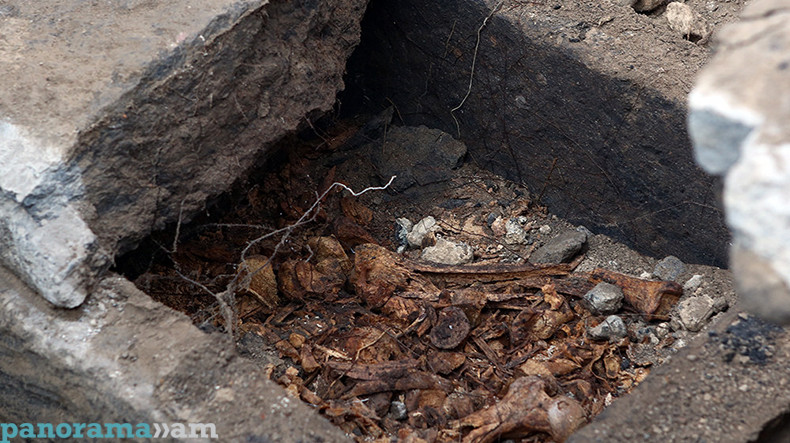
Relics of Armenian kings to remain packed till funds are available
"The three relic-chests discovered during the excavations of the Aghdzk village mausoleum of the Armenian kings of Artashesyan and Arsacid dinasties is an important discovery. We have an exceptional opportunity to reveal the genetic code of the Armenian kings which is interesting not only for us but also for the international scientific community, namely for the Persian, European and American scientists," Hakob Simonyan, Deputy director of RA Scientific-Research center for Historical-Cultural Heritage, head of the expedition told panorama.am
It is comprehensible why the study can be of importance to the Persian and European scientists, but why should the relics of the Armenian kings be interesting for the Americans?
In response to the above mentioned question the archaeologist noted the following: "The relics of the kings who ruled during the early medieval period are rare worldwide. They realize theimportance of this discovery. It is quite likely that if we submit letters they could help us driven out of interest and conduct DNA analysis for free of charge."
Notably two of the chests had been opened earlier and opening of the third one took place on 12 November. The relic-chests contain the bones of the members of the Armenian Artashesyan and Arsacid royal houses.
H. Simonyan noted that the bones are subject to anthropological research, so that they can be able to present the complete and final results of the discovery.
"This is a long-lasting, difficult and expensive activity. The research is to be conducted by the best specialists in the most prestigious laboratories of the world. All this requires significant amount of money, and we should seek and find out that funds. The anthropological research will enable us to find out the people's age, gender, they diseases they suffered from, and it is also possible to reveal the causes of their death. DNA analysis would reveal their genetic code," the archaeologist noted.
H. Simonyan added that the carefully packed relics will be taken to the laboratory and after conducting anthropological research they will be kept in a fridge so that they are not subjected to any modifications.
"After the research, I think, a governmental commission is to be established to decide the future of the bones, namely where they should be presented and how they should be kept. We might not have a second chance to make such a discovery," the head of the expedition noted.
In response to the question how they can acquire the necessary sum he noted that it is the issue of the government as the government itself sould be interested in providing the necessary funds. The discovery has a great importance for the country and the state is to tackle the issue.
Newsfeed
Videos






























